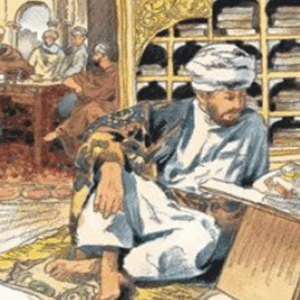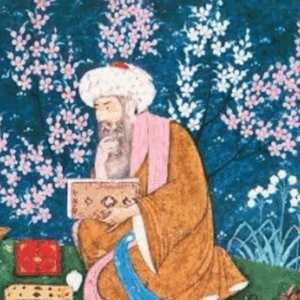Story of Dawud David
Sayyiduna Dāwūd (David), peace be upon him, was a descendant of Judah, one of the twelve sons of Sayyiduna Ya‘qub (Jacob), who is also known as Israel. He is recognized by Jews and Christians as Prophet David, and by Muslims as both a Prophet and a Messenger sent to the Children of Israel after the time of Sayyiduna Mūsā (Moses), peace be upon them all. Allah mentions:
“Those among the Children of Israel who disbelieved were cursed by the tongue of Dāwūd and ‘Īsā son of Maryam because they rebelled and crossed all limits. They did not stop one another from the wrongdoing they committed—how terrible was what they used to do.”
— Al-Mā’idah
Sayyiduna Dāwūd was not only a Prophet but also a Messenger, for Allah revealed to him a scripture that supplemented the Torah—the Zabūr (Psalms). Allah says:
“And your Lord knows best all that is in the heavens and the earth. We have surely favoured some Prophets over others, and We gave Dāwūd the Zabūr.”
— Al-Isrā’, 17:55
The Qur’an does not give details about his childhood, but it does highlight an important event during his youth—the slaying of Jalūt (Goliath). This incident is mentioned in Surah Al-Baqarah in the story of Ṭālūt (Saul), who was appointed king over the Children of Israel by a Prophet of that time—understood by scholars to be Prophet Samuel. Ṭālūt fought the Philistines, and with the help of young Dāwūd, defeated them.
The Choosing of Ṭālūt (Saul)
The Qur’an recounts how the leaders of Israel asked their Prophet to appoint a king so they could fight in the path of Allah. Although they promised to fight, only a few remained firm when the command was given. Their Prophet informed them:
-
Allah had chosen Ṭālūt as their king.
-
His sign of authority would be the return of the Ark of the Covenant, carried by angels.
This Ark contained sacred relics from the families of Mūsā and Hārūn. The Philistines had captured it previously, and its miraculous return persuaded the Israelites to accept Ṭālūt’s leadership.
The Test at the River
As Ṭālūt marched with his army, he told them:
“Allah will test you with a river. Whoever drinks from it is not with me; whoever refrains is with me—except the one who takes only a handful.”
Most failed the test.
When the small remaining group faced Jalūt’s massive army, those with strong faith encouraged others by saying that many times a smaller group, by Allah’s permission, defeated a much larger force.
Dāwūd’s Victory Over Jalūt
With Allah’s support, the believers defeated the Philistines, and Dāwūd killed Jalūt. Allah then granted him kingship, wisdom, and knowledge, elevating him in rank among the Israelites.
Dāwūd as King and Prophet
Sayyiduna Dāwūd succeeded Ṭālūt as king. During his rule, he united the various tribes of Israel, restoring their strength and unity.
Allah blessed him with many unique gifts. Among them was the ability to shape iron with ease and create chain-mail armor. Allah commanded:
“Make full coats of mail, measuring the links precisely, and do good—surely I see everything you do.”
— Saba’, 34:10–11
The mountains and the birds were commanded to celebrate Allah’s praises along with him, reflecting his deep devotion and beautiful recitation.
His Worship and Character
The Prophet Muhammad ﷺ said that Allah made the recitation of the Qur’an (or the Zabūr) easy for Dāwūd—so easy that he could finish it in the time his riding animal would be saddled and released. He earned his living solely from the work of his own hands. (Bukhari)
The Wisdom of Dāwūd and Sulaymān
Abdullah ibn ‘Umar reported that the Prophet ﷺ mentioned the famous story of two women who disputed ownership of a child after a wolf had taken the other child. Dāwūd judged in favor of the older woman, but when they went to Sulaymān, he suggested cutting the child in half. The younger woman cried out, begging for the child to be spared, revealing she was the true mother. Thus, Sulaymān judged in her favor. (Bukhari)
Luqmān the Wise
Allah also granted wisdom to Luqmān, who lived during the time of Dāwūd. Some reports say he was offered Prophethood but chose wisdom instead, and that he became an advisor to Dāwūd. Some scholars also link Aesop’s fables to the wisdom of Luqmān—Allah knows best.
Surah Luqmān records his beautiful advice to his son:
-
Be grateful to Allah.
-
Avoid shirk, for it is a tremendous wrong.
-
Treat parents with kindness.
-
Pray regularly.
-
Command good and forbid evil.
-
Be patient in hardships.
-
Avoid arrogance and harshness.
-
Walk humbly and lower your voice—
“for the most unpleasant of sounds is the braying of a donkey.”




